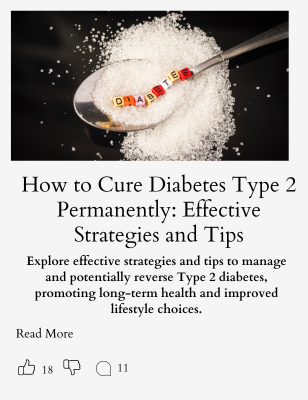Memory is an essential function of the human brain, intricately involved in every aspect of cognitive processing, from learning new information to retrieving long-standing facts. As people age or face cognitive challenges, many seek ways to maintain or improve their memory. Supplements are often touted as a means to boost cognitive functions, including memory. However, the market is saturated with various products, each claiming to be the best, which leads to confusion about which supplements are truly effective.
To understand which supplements can positively impact memory, it’s crucial to consider research-backed options and their mechanisms of action within the brain. Some supplements are believed to improve blood flow to the brain, potentially enhancing cognitive function, while others may affect neurotransmitters related to memory. It is also important to examine scientific studies that provide evidence of efficacy, alongside recommended dosages and potential side effects.
Key Takeaways
- Effective memory supplements are those with research-backed claims that support their impact on cognitive functions.
- Understanding the mechanisms by which supplements affect memory can guide proper usage and expectations.
- Consideration of scientific evidence, correct dosage, and awareness of side effects ensures safe consumption of memory supplements.
Understanding Memory
Memory is a complex biological process involving various regions of the brain. It plays a critical role in learning, decision-making, and everyday functioning. To enhance memory through supplementation, it’s essential to grasp its biological basis and the types of memory that could be influenced.
The Biology of Memory
The biological foundation of memory lies within the brain’s network of neurons. Long-term potentiation (LTP) is a crucial aspect of how memories form and consolidate over time. During this process, the synaptic connections between neurons become stronger with repeated stimulation.
Memory formation and recall involve several key brain areas:
- Hippocampus: Vital for forming new memories.
- Prefrontal Cortex: Associated with complex processes like planning and personality.
- Amygdala: Integral for emotional memory.
- Cerebellum: Plays a role in procedural memory, related to motor tasks.
Types of Memory Impacted by Supplements
Memory can be categorized into several types, each with distinct processes and functions:
- Explicit Memory (Declarative): Consists of facts and experiences that an individual can consciously recall and declare.
- Semantic Memory: Involves general world knowledge.
- Episodic Memory: Relates to personal experiences and events.
- Implicit Memory (Non-declarative): Involves skills and tasks that are performed without conscious awareness.
- Procedural Memory: Details the motor skills and actions.
Supplements may target different aspects of these memory types to support cognitive function and memory retention.
Key Supplements for Memory Enhancement
Certain supplements may support memory function by providing essential nutrients that the brain needs to operate optimally.
Omega-3 Fatty Acids
Omega-3s, particularly eicosapentaenoic acid (EPA) and docosahexaenoic acid (DHA), are crucial for brain health. DHA supports the maintenance of brain cell function, while EPA influences mood and cognition.
- Main Sources: Fish oil and krill oil supplements.
- Recommended Dose: Often varies, but a typical dose includes about 1,000 mg of EPA and DHA combined, daily.
B Vitamins
B vitamins, including B6, B9 (folate), and B12, have a significant role in brain health. They may help reduce homocysteine levels, which is associated with cognitive decline.
- Impactful B Vitamins:
- Vitamin B6: Aids in neurotransmitter synthesis.
- Folate: Important for DNA synthesis and repair.
- Vitamin B12: Essential for nerve function and maintenance.
Vitamin D
Vitamin D receptors are widespread in the brain, suggesting its importance in cognitive function. Low levels of vitamin D have been linked with a decline in memory and cognitive abilities.
- Optimal Levels: Often a minimum of 600 IU daily, with higher amounts recommended for those with a deficiency.
Antioxidants
Antioxidants like Vitamin E and Vitamin C help combat oxidative stress, which can lead to cognitive decline.
- Common Antioxidants for Memory:
- Vitamin E: Positively impacts age-related memory loss.
- Vitamin C: Supports overall brain health.
Herbal Supplements
Some herbal supplements are used for memory enhancement due to potential cognitive-protective effects.
- Notable Herbs:
- Ginkgo Biloba: May improve blood flow to the brain.
- Bacopa Monnieri: Traditionally used to enhance memory and cognitive function.
Scientific Evidence
In the quest to enhance memory, scientific scrutiny provides valuable insights into the effectiveness of supplements.
Clinical Trials
Clinical trials offer robust data on how memory supplements perform under controlled conditions. They involve participants who take the supplement and are monitored for changes in cognitive function over time. Key points from trials include:
- B Vitamins: Large-scale trials suggest a combination of vitamins B6, B9 (folic acid), and B12 can slow cognitive decline in older adults with memory issues, especially those with high homocysteine levels.
- Omega-3 Fatty Acids: Studies show that regular consumption of omega-3 supplements, such as fish oil, may benefit cognitive function, although results can vary widely depending on the population and dosages studied.
Research Findings
Pivotal findings stem from peer-reviewed research, examining the mechanisms by which supplements may influence memory.
- Ginkgo Biloba: Research indicates that ginkgo biloba may improve blood flow to the brain and exhibit neuroprotective properties, but its impact on memory enhancement is inconsistent.
- Vitamin D: Some studies correlate higher levels of vitamin D with better cognitive function, yet direct causation and the effect of supplementation are not fully established.
Research continues to explore how these and other supplements might contribute to memory retention and cognitive health, with an emphasis on how they intersect with various biological pathways.
Dosage and Administration
In considering the best supplements for memory, it’s essential to focus on recommended dosages, methods of intake, and timing for optimal absorption to ensure both efficacy and safety.
Recommended Dosages
Omega-3 Fatty Acids: Studies suggest a dosage of 1,000 mg daily could benefit cognitive health.
Ginkgo Biloba: A standard dose ranges from 120 to 240 mg per day, typically divided into two or three doses.
Vitamin E: Recommended not to exceed a daily dose of 15 mg (or 22.4 IU) unless otherwise advised by a healthcare provider.
Method of Intake
Omega-3 Fatty Acids:
- Preferably taken with meals to enhance absorption.
Ginkgo Biloba:
- Available as capsules, tablets, or liquid extracts. The choice depends on personal preference.
Vitamin E:
- Capsules or softgels are common forms, to be taken with water.
Timing for Optimal Absorption
Omega-3 Fatty Acids:
- Best taken with meals to improve digestion and absorption.
Ginkgo Biloba:
- Recommended to split the dose; morning and early afternoon, to avoid potential sleep disturbances.
Vitamin E:
- With a meal that includes fat for better assimilation.
Safety and Side Effects
When considering supplements for memory enhancement, one must carefully evaluate the safety profile and potential side effects. It is essential to consider the risks of interactions with other medications and the implications of long-term use.
Potential Interactions
- Prescription Medications: Some supplements may interfere with the efficacy of prescription medications, such as blood thinners or anti-seizure drugs.
- Over-the-Counter Drugs: Supplements might also interact with over-the-counter medications like aspirin, affecting the way they work.
- Other Supplements: Combining different supplements can lead to adverse effects or diminished results.
Long-Term Safety
- Clinical Studies: Many supplements lack extensive long-term clinical studies, making it challenging to assess their prolonged safety.
- Regulatory Oversight: The regulation of supplements is not as stringent as pharmaceuticals, leading to potential variability in quality and safety.
It’s imperative for individuals to consult with healthcare professionals before starting any new supplement regimen, especially if they have preexisting health conditions or are taking other medications.
Lifestyle and Natural Approaches
Before exploring specific supplements, it’s important to consider that a combination of dietary, physical, and cognitive strategies can significantly boost memory function.
Dietary Considerations
One should focus on a balanced diet rich in antioxidants and Omega-3 fatty acids. Foods like blueberries, fatty fish, and walnuts are particularly beneficial. For example:
- Antioxidants: Blueberries, dark chocolate, and spinach
- Omega-3 Fatty Acids: Salmon, chia seeds, and flaxseeds
Physical Exercise
Regular physical activity can improve memory by increasing blood flow to the brain. Aerobic exercise, such as walking and swimming, is highly effective. Key activities include:
- Aerobic Exercise: At least 150 minutes of moderate-intensity exercise per week
- Strength Training: Engaging in muscle-strengthening activities 2 or more days a week
Cognitive Training
Cognitive exercises that challenge the brain can enhance memory retention. Examples include:
- Puzzles and Brain Games: Sudoku, crosswords, and memory match games
- Learning New Skills: Taking up a new language or musical instrument
Conclusion
In optimizing memory function, omega-3 fatty acids, ginkgo biloba, and vitamin E stand out as significant. They each show a measure of efficacy in supporting cognitive health, although individual responses can vary. Omega-3s are critical for brain health, and evidence suggests that DHA, a component of omega-3, aids in memory enhancement.
Ginkgo biloba, used for centuries in traditional medicine, demonstrates some potential in improving blood flow to the brain, which may support cognitive abilities. Vitamin E, an antioxidant, plays a role in protecting neuronal integrity. However, the scientific community emphasizes that the best results often come from a combination of healthy lifestyle choices, including balanced nutrition, regular exercise, and mental stimulation, alongside any supplement regimen.
It is imperative to consult with a healthcare professional before starting any new supplement to avoid interactions with other medications or pre-existing health conditions. This advice is crucial, especially for those who are pregnant, nursing, or have chronic health issues.
While the scientific landscape continuously evolves, individuals considering supplements should prioritize well-researched options with a clear understanding of their benefits and limitations. High-quality studies and ongoing research will further clarify the role of these supplements in memory support.
Frequently Asked Questions
In this section, readers will find answers to common inquiries regarding supplements that may enhance cognitive function and memory.
Which nutrients are known to enhance cognitive function and memory?
Certain nutrients, such as omega-3 fatty acids, B vitamins (particularly B6, B12, and folic acid), and antioxidants like vitamin E, have been associated with improved cognitive function and memory.
Are there natural herbs or supplements that aid in memory enhancement?
Herbs such as Ginkgo biloba and Bacopa monnieri are reputed to have memory-enhancing properties. Supplements like curcumin, the active component of turmeric, also show promise in cognitive health.
What nootropics are recommended for improving memory retention?
Nootropics like Piracetam and Aniracetam are often recommended for memory retention. However, individuals should consult a healthcare provider before taking these substances.
What supplements are specifically advised for elderly individuals to boost memory?
Elderly individuals may benefit from vitamin D, B vitamins, and omega-3 supplements to support memory. Phosphatidylserine is another supplement that has been shown to aid cognitive function in older adults.
Can certain vitamins or minerals prevent or reduce memory decline?
While no supplement can prevent memory decline entirely, adequate intake of vitamins and minerals like vitamin D, the B vitamins, and magnesium can contribute to maintaining cognitive health.
How effective are omega-3 fatty acids in supporting memory and brain health?
Omega-3 fatty acids, particularly those found in fish oil supplements, have been found to support memory and overall brain health. They are crucial for maintaining brain structure and function.



















